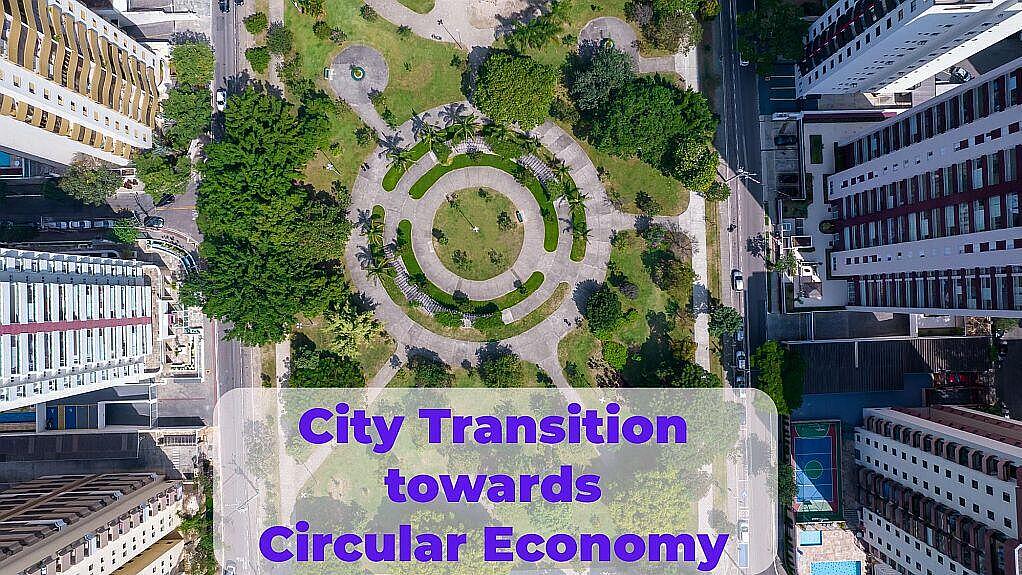 Buildings & Transport
Buildings & TransportBuildings & Transport
Research and Development Funding: IT services to help municipalities transition towards Circular Economy
European cities, regional and national organisations have to transition towards Circular Economy. Only 10% of the cities have advanced on circular transition, as it is particularly complex. Municipalities and local businesses across Europe are facing four interlinked challenges. Cities and the local economy require support to operationalise the growing body of CE knowledge. The CircularPSP project and consortium believes that curated Artificial Intelligence using NLP and taxonomies within a platform solution is able to support ten thousand of European municipal staff and by extension local businesses. Upcoming news items will describe the challenges in more detail.
Read Full articleTransforming Europe’s Social Housing: Survey on Energy Efficient Refurbishment Strategies
SUPER-i survey is an online survey aimed at collecting insights on the current state of the energy-efficient refurbishment of social housing stocks in Europe. Results will identify areas for improvement, enable benchmarking of energy efficiency performance, and inform decision-making processes at various levels.
Read Full articleEnergy Optimization using Artificial Intelligence (AI) on HVAC system
HVAC equipment operates under the control of automation systems or a building management system. New fully autonomous self-adaptive Artificial Intelligence (AI) software is designed to deliver significant savings and dramatically reduce carbon emissions, enabling a self-operating building.
Read Full article5 Things you need to know about 5G Heat (Fifth Generation Heat!)
In my blog ‘How will energy look in 2030? I have made 10 predictions for the next 10 years! I predicted that by 2030 all city centres will have some form of fifth generation heat network - taking heat networks share of heating beyond the 18% currently forecast.
Read Full articleIndustrial Urban Symbiosis: REDOL Project launched in Zaragoza
Solid urban waste (SUW) is an abundant source for circular products production, but it is generally not exploited. Over 500 kg of municipal waste per capita were generated in the EU in 2020, while only 45% was recycled.
Read Full articlePersonal Data - Smart Cities: How Cities Can Utilise Their Citizen’s Personal Data to Help Them Become Climate Neutral
The Smart Cities Marketplace initiative, Citizens Control of Personal Data will launch a book on the EC stand at the Smart City Expo World Congress in Barcelona on November 15th. It will address some of the issues which a smart city needs to overcome to make use of both the data currently available to them and how this can be enhanced by using emerging technology.
Read Full articleWhat it means placing citizens at the heart of smart city transition
Peachtree Corners is one of the USA top testing grounds for shiny new smart city technology. The 45,000-person city is home to an unusual public innovation experiment. Curiosity Lb invites private firms to come test out their prototypes.
Read Full article5 smart cities around the world
Smart cities use information and communication technology (ICT) to improve operational efficiency, share information with the public and provide a better quality of government service and citizen welfare. The UN predicts that 70% of the world population will be living in cities and urban areas by 2050.
Read Full articlePROCURE SELECTS 3 INNOVATIVE APPROACHES
ProcuRE launched the first out of three phases towards reaching its goal. Six procurers from Slovenia, Spain, Germany, Portugal, Israel, and Turkey selected three innovative Renovation Approaches. The Call for Tenders was released on 24 November 2021.
Read Full articleMoving hydrogen from hype to hope
Hydrogen is the talk of the town and the Commission makes it a big priority in its green industrial strategy. There are few hydrogen fuel cell cars and most of them are actually demonstration vehicles.
Read Full article








